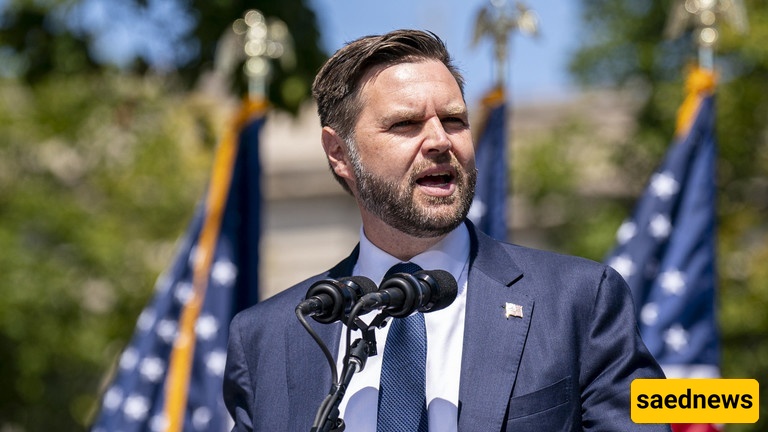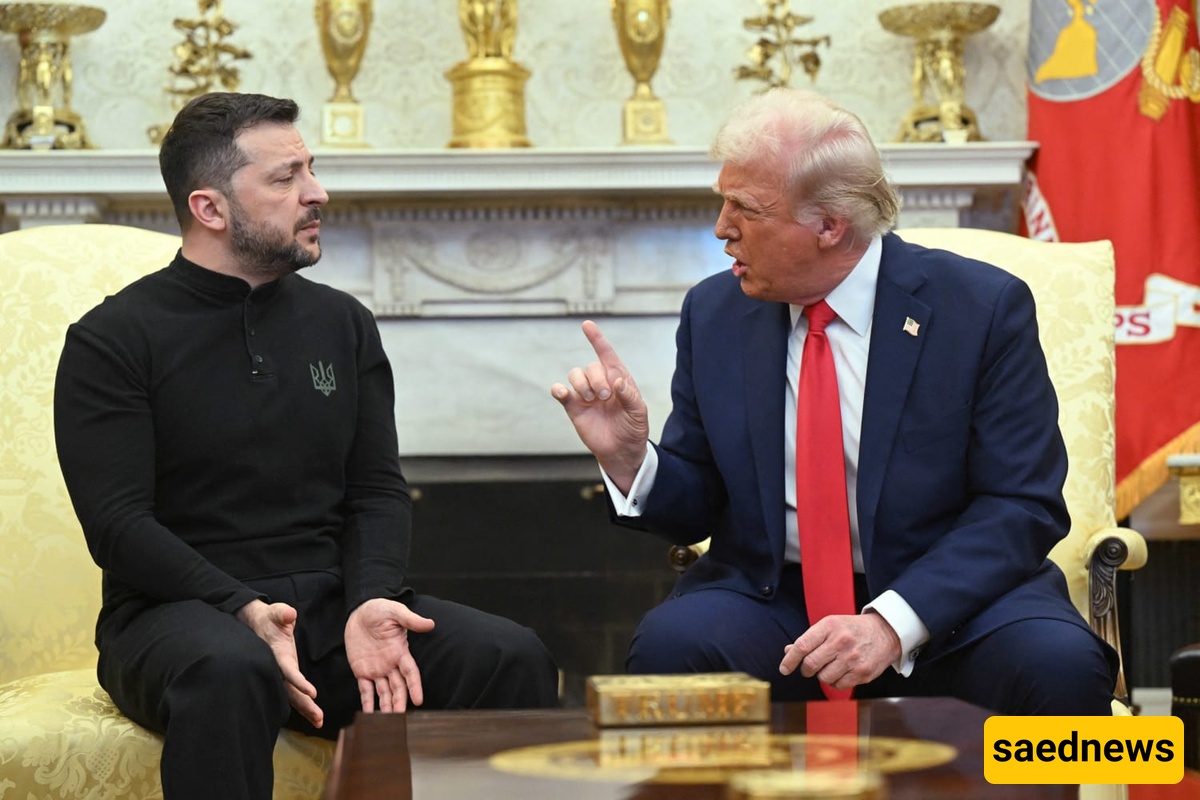SAEDNEWS: In an unprecedented shift in U.S. foreign policy, Mark Vance, the senior government representative, has officially announced that the United States no longer intends to continue financial and military aid to Ukraine.

According to SaedNews, citing Russia Today, in an unprecedented shift in U.S. foreign policy, Mark Vance, the senior government representative, has officially announced that the United States no longer intends to continue financial and military aid to Ukraine.
This announcement, made amid the costly and prolonged Russia-Ukraine war, has sparked widespread international reactions and raised serious concerns about the future of the crisis and regional stability. The sudden halt of U.S. support could shift the balance of power in favor of Russia and diminish Ukraine’s leverage in any potential negotiations.

The declaration of ending U.S. financial support marks a change in the current administration’s approach compared to previous policies, during which the majority of military and economic aid to Ukraine was allocated. These aids—including advanced weaponry, military training, and development budgets—played a vital role in Ukraine’s resistance against Russian aggression. However, heavy costs and domestic pressures in the U.S., particularly due to declining war popularity and increasing criticism over crisis management, have pushed the government to reconsider its strategies.
This decision may have widespread consequences for Ukraine. A shortage of financial and military resources might reduce the country’s defensive capabilities and increase its vulnerability to Russian attacks. On the other hand, it is likely to impact peace negotiations, as Kyiv may be compelled to accept broader compromises to preserve its existence.
From Russia’s perspective, the U.S. decision to stop support is a valuable opportunity to increase pressure on Ukraine and impose favorable conditions. Moscow could use this situation to strengthen its negotiating position or even advance militarily. Analysts believe Washington’s policy shift could heighten regional instability and cross-regional tensions.
Within the U.S., this decision has sparked intense debates. Some politicians and military experts criticize the continuation of support, considering its high costs unbearable and its effect on domestic priorities minimal. Conversely, others warn that cutting aid could lead to the collapse of the Ukrainian government and create a security vacuum with negative repercussions for the U.S. and its allies.
Economically, ending U.S. support for Ukraine may reduce federal expenditures but increases long-term risks for global security and America’s geopolitical standing. Meanwhile, European countries, which have played a significant role in supporting Ukraine, now face the question of whether they can fill the gap left by the U.S.
This policy shift also reflects public dissatisfaction in the U.S. with foreign conflicts and a desire to focus on domestic issues. Domestic media and analysts have described this move as a sign of changing priorities and government policies, which may affect international relations and the global balance of power.
Given all these factors, the future of international support for Ukraine and the fate of the war remain highly uncertain. Will European countries and other allies be able to replace U.S. support? Can Ukraine continue its resistance with limited resources? And most importantly, will this decision accelerate the end of the war or, conversely, complicate the situation? These questions remain unanswered, and the coming months will be crucial.

